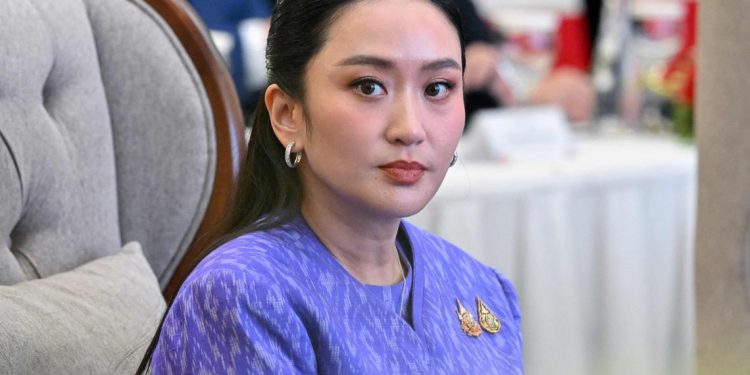I t is claimed by many that dynastic politics is a bane for democracy in many countries, including India, as the interests of a family become far more important for the rulers than those of the people at large and their country. If judicial overreach is added to such politics, the result becomes an unmitigated disaster.
Like in India, this is what has also happened in Thailand where the country’s Constitutional Court recently removed yet another Prime Minister, Paetongtarn Shinawatra, a scion of the Shinawatra family, from office.
The reason for what can be called a judicial coup is a leaked phone call she had in June with the veteran Cambodian leader Hun Sen. In it Paetongtarn could be heard being conciliatory towards Hun Sen over their countries’ border dispute and disparaging one of her own army commanders, who, she said, stood in the way of improvement of relationship between the two countries. She defended her conversation, saying she had been trying to make a diplomatic breakthrough with Hun Sen, an old friend of her father Thaksin Shinawatra, and said the conversation should have remained confidential.
The leak proved her undoing as it sparked calls for her to resign. It also saw her biggest coalition partner walk out of the government, leaving her with a slim majority. In July, seven out of the nine judges on the court voted to suspend Paetongtarn, a margin that suggested she would suffer the same fate as her four predecessors. In this sense, the court’s final verdict was only expected. Paetongtarn becomes the fifth Thai PM to be removed from office by this court, all of them from administrations backed by her father. This has given rise to a widespread belief in Thailand that the court nearly always rules against those seen as a threat by conservative, royalist forces. The judiciary is dominated by these forces. The court has also banned 112 political parties, many of them small, including two previous incarnations of Thaksin’s Pheu Thai party and Move Forward, the reformist movement which won the last election in 2023.
Also Read: Morale Matters
In a few other countries, political life hangs in the balance similarly with an excessively proactive judiciary. The phone call caused such an upheaval across the Thai-Cambodian border that a five-day war broke out in August that killed more than 40 people. Thaksin staged a comeback in Thailand politics after having been in exile for years through a deal with the conservatives and royalists. He fielded his young daughter to regain political space. But the inexperienced Paetongtarn failed to make any impression on her people or establish any real authority over the country, with most Thais presuming that her father was making all the big decisions. But his famed political acumen seems to have deserted Thaksin Shinawatra. Pheu Thai party’s signature policy at the last election, a digital wallet which would put B10,000 ($308) in the pocket of every Thai adult, has stalled and is widely criticised as ineffective.
Other grand plans, such as legalising casinos and building a “landbridge” linking the Indian and Pacific Oceans, have gone nowhere. On top of it, at a time when Thai nationalist sentiment has been fired up over the border war with Cambodia, the Shinawatra family’s long-standing friendship with Hun Sen has strengthened suspicion in conservative circles that they will always put their business interests before those of the nation. The party’s popularity has nosedived after having been an unbeatable electoral force in Thai politics for over two decades.
A similar situation has evolved in India over the past decade, which has shown people in top power positions taking extreme steps to benefit only a very few business persons’ interests above that of the country. Paetongtarn’s aunt Yingluck Shinawatra, was removed from office before the military seized power in a 2014 coup, and her father went into self-imposed exile in 2006 for more than 15 years to escape corruption charges after the military toppled his government. Her uncle Somchai Wongsawat served briefly as PM in 2008 but was removed in a court ruling. A fresh period of instability now stares Thailand in the face.
If the ousted PM’s party – Pheu Thai – fails to put forward a new PM, the most likely possibility would be new elections. One solution to the country’s long-standing political problem could be reforming the entire system in which the conservative and royal, and military forces are relegated to the background. This is exactly the agenda of the opposition Move Forward, which was outmanoeuvred to come to power last time, even after getting the maximum popular ratings. In the near future, the possibility of relegating those powerful forces to the background seems very unlikely.






































